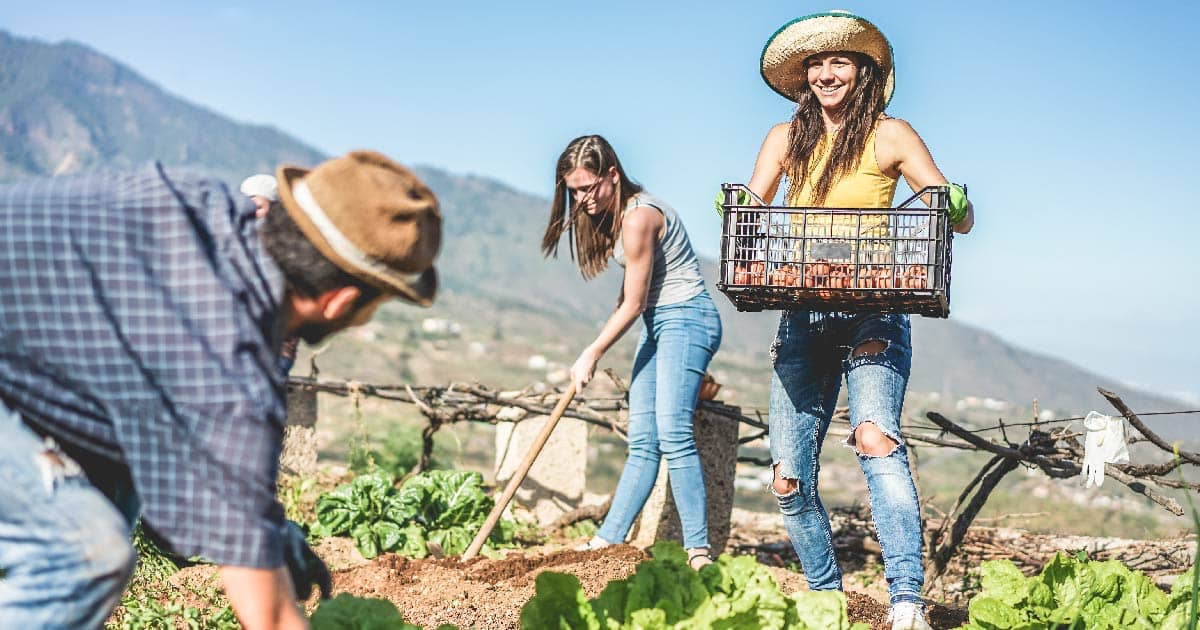All right guys. I want to talk to you about something serious. And this is 88 days of farm work in order to extend your working holiday visa. It sounds great. You get to go to outback Australia, have an amazing time working on a farm and then you get another year on your working holiday visa. Who wouldn’t do that?
Check the next video: JOB OPPORTUNITIES IN AUSTRALIA
Australian Working Holiday Visa second year – 88 days?
All right guys. I want to talk to you about something serious. And this is 88 days of farm work in order to extend your working holiday visa. It sounds great. You get to go to outback Australia, have an amazing time working on a farm and then you get another year on your working holiday visa. Who wouldn’t do that?
But I want to tell you about the reality of the 88 days of farm work. Because it’s important you know the benefits and the downsides in order for you to make an informed decision so you can have the best time here in Australia.
First of all, the general rule is: if you complete 88 days of farm work in an approved regional area, you’ll be able to extend your first w-working holiday visa into your second working holiday visa.
Also if you complete 6 months in a regional area, you can now apply for a third year of working holiday visa. But let’s actually talk about what that means.
First of all, it’s important that you know that your work must be undertaken in an approved regional area. So generally areas outside big cities like Sydney, Melbourne, Brisbane and close to those cities; they’re not relevant. You need to actually check that the post code that you’re working in is an approved regional area. Otherwise your work does not count. Make sure you check that out first.
Secondly, you need to check that whoever is employing you is actually approved by the government to sign off on your farm work. The last thing you want to do is head out to a farm, be undertaking work that is not approved, and you’ve gone and wasted your 88 days.
Now, let’s talk about those 88 days because it’s important that you understand what this actually means. It actually is a requirement that you undertake 88 days of physical farm work if you’re on a casual contract. So this doesn’t include weekends, this doesn’t include days of rain where you might not be out on the farm. So your 88 days might blow out to 120 days. You need to be really really careful of this.
Now the best situation is for you to negotiate a part time contract or a full time contract, because that does include weekends. And that means that you can fit everything in to an 88 days. But a lot of farmers won’t often approve that.
Now there’s also a minimum earning requirement. The minimum hourly rate is roughly 18 dollars an hour, but I suggest you check this on the government website as it changes regularly and you want to make sure that you are earning the minimum in order to be classified a relevant worker.
So a lot of people expect that they’ll be going out on a farm and picking strawberries and having a great time. But let’s actually talk about the reality of what you may experience on a farm. First of all, a lot of workers get paid not an hourly rate, they get paid per basket. So you will actually be working hard to fill a basket and getting paid per basket and the weight of that basket. If you don’t fill enough baskets, or if your baskets aren’t heavy, you will not be earning the minimum rate that you need to satisfy your working holiday visa requirements. So make sure that you check out that you are going to be meeting those requirements.
Secondly, it’s pretty hard. Can you imagine lifting pumpkins all day? You’re going to be bending over in the hot sun, and Australian farm work can get up to 45 degrees. It’s going to be tough work. So don’t expect an easy fun ride where you’re just going to be picking strawberries and high fiving each other all the time.
Hello, I am Simon
I’m part of the Go Study Australia family and I am here to help you.
You can contact me here for any doubts!
Another reality that you should be prepared for, is some farms have a strict no conversation policy. They want you working hard, and they want every ounce of your attention focused on the job. So check about that before you commit to a farm. It’s really important that you find the right farm that’s going to meet your needs.
Now there is an expectation that you’re going to go work on a farm and save money because you won’t have any expenses. But the reality is that many farms are in isolated areas, which means that the hotels and hostels are very very expensive, and also food is very very expensive. So if you’re only earning a hundred dollars a day, but your accommodation is costing you fifty dollars a day, then that only leaves you fifty bucks a day for working ten hours a day. It’s not that much. I’m not saying don’t do it, but I’m saying you need to have the information upfront before you commit.
All right, lastly let’s talk about this fact that 88 days, it’s only 88 days and I can survive. Do you really want to give up 3 months of your 12 months working on a farm just so you can extend for another year? There might be better options out there. And also, it’s important to know that 88 days doesn’t always mean 88 days. In order to satisfy the 88 day requirement, this means 88 days of actual farm work. So if you are on a casual contract and you’re not working weekends, it won’t include weekends. If it rains and you don’t go to work that day, it doesn’t include the days off. This means that your 88 days could blow out to 180 days. It’s really important that you look at getting the right contract.
So we would suggest a uh… a permanent full-time contract. Which means that you can uh be covered for working those entire 88 days. Many farmers won’t do this though, as they’ll give you a casual contract and pay you by the basket. It’s important you know this so when you’re looking for the right farm, you enter in to the right workplace agreement, knowing what you’re up for.
The last thing you want is these horror stories of people getting trapped on a farm with low wages and just extending and extending their work time, just so they can meet their 88 days.
And also, a word of advice. And a personal word of advice. Please be careful in choosing your farm, and research it properly. There are many stories of international workers being exploited and abused by farmers who are taking advantage of the fact that you need to be there. So again, I’m not saying don’t do it. But I’m saying, research. Ask questions, get recommendations from other people on forums such as Facebook about where did you have a good experience?
The other alternative is you come and have a chat to us at Go Study Australia. We have expert advisors who can tell you about their experience in Australia, and we also have guidebooks that can guide you on what to look for in terms of your farm work, what to avoid, and how to make the most of your time in Australia.
It’s really important to us that you as an international person have an amazing experience while down under. So take the time, do the research, come have a chat with us at Go Study, and we will make sure that your time down under is ultimately successful. We’ll see you in Australia real soon.








